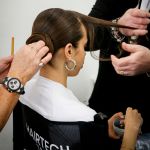
What is Elon Musk's Neuralink
The neurotech that could help who suffer brain diseases as Parkinson, anxiety and depression
August 28th, 2020
According to what he said on his Twitter profile, Elon Musk is about to present to the world the first prototype of a brain-machine interface technology (BMI) developed by his neurotech firm Neuralink. After the rumors that have been chasing each other throughout the past year, the new press conference is scheduled for today, Friday, August 28th, at 6.00 pm ET (midnight according to the Italian time zone). Considering the first rumors, the announcement should also include the unveiling of a second generation robot capable of attaching the company's technology directly to the brain, as well as a demo of neurons that "firing in real time", whatever that means.
Live webcast of working @Neuralink device
— Elon Musk (@elonmusk) August 26, 2020
Friday 3pm Pacific https://t.co/PouLbrGzFU
The first clues on the progress made by the company were anticipated in July, again on Twitter, again by Musk. Answering some questions from users, Musk talked about an interface that will allow music to be transmitted directly to the brain; but beyond the speculations, informations on Neuralink are still scarce. Active since 2016, the company has always remained silent; for the moment, we only know what was revealed during a presentation back in 2019, when the firm showed the design of a device that connects to the brain through holes in the skull made with a laser. The first iterations of this device would have the goal of repairing damaged neural connections to all those suffering from brain disorders including Parkinson's, but the uses could be multiple: Musk confirmed that it could also help "stimulate the release of oxytocin, serotonin and other chemicals when needed”, helping all people suffering from anxiety and depression.
Musk has never hidden his belief that BMI devices are necessary to help humans not only to keep up with artificial intelligence, but also to complement their brainpower. Still far from such a result, right now the goal is slightly simpler: to create an implantable device that allows people to control phones or computers with their mind. In particular, the firm wants to do this using flexible electrodes thinner than a human hair, called "wires", but the current devices still risk to cause irreparable damage to the human brain. The hope is to make the installation process non-invasive, not much different from what happens with Lasik eye surgery, while also eliminating the need to use general anesthetic. In the past, Neuralink had stated that it wanted to proceed with the first clinical tests starting from the end of 2020; according to what Musk wrote, however, such a procedure is not yet ready to be implemented.
Yes, will show V2. Still far from LASIK, but could get pretty close in a few years.
— Elon Musk (@elonmusk) August 26, 2020
The goal is ambitious, but it risks to look only like the latest crazy idea by Elon Musk, who in recent months has made headlines for a media overexposure worthy of a real celebrity. Serving also as the CEO of SpaceX and Tesla (which has recently been declared the most valuable automaker in the world), Musk has become an independent brand from all his real businesses. Furthermore, he has just been named by Forbes as the fifth richest person on the planet, with a net worth of over $ 74 billions. Considering that his ultimate goal seems to be a symbiosis between man and machine, it makes us smile to think that only 10 years ago he made his big-screen debut in Iron Man 2, starring in a cameo in which he joked with Tony Stark/Iron Man about the simple idea of an "electric jet".

























































